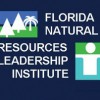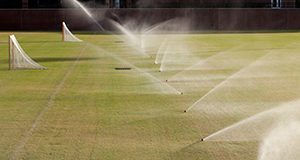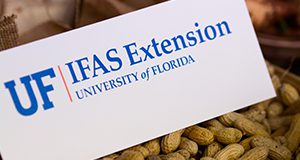Water impacts Florida’s tourism, agriculture, retail, and real estate development industries, all of which significantly contribute to Florida’s economy. Enhancing and protecting water quantity, quality, and supply is of ever-increasing importance to UF/IFAS Extension. This four-page document will provide an overview of how to communicate with Florida residents about water, including information about their preferred communication method and what water-related topics are of interest to Florida residents. Written by Alexa J. Lamm, Phillip Thomas Stokes, and Caroline G. Roper, and published by UF’s Agricultural Education and Communication Department, September 2017.
http://edis.ifas.ufl.edu/wc165
Tag: UF/IFAS Extension
Water Conservation and Extension Participants: An Interesting Synergy
The home landscape is a place where there is a great opportunity for people to adopt irrigation practices and technologies that conserve water. However, a large portion of residents lack the required knowledge and skills to adopt some of those practices. This three-page fact sheet discusses using innovative evaluation approaches to demonstrate the impacts of statewide urban water conservation programs. Written by Laura A. Warner, Sebastian Galindo-Gonzalez, and Anil Kumar Chaudhary and published by the Department of Agricultural Education and Communication.
http://edis.ifas.ufl.edu/wc278
Estimating Return on Investment (ROI) for a Behavior Change: An Evaluation Tool for Extension Programs
Extension professionals can benefit from knowing the value of a program’s outcomes compared to how much it costs. One way to estimate a program’s value relative to cost is through a series of calculations, known as Return on Investment (ROI). This four-page fact sheet describes ROI and how Extension professionals can use it in their programming. Written by Amanda D. Ali, Laura A. Warner, and Hayk Khachatryan and published by the Department of Agricultural Education and Communication.
http://edis.ifas.ufl.edu/wc270
Reporting Clientele Contacts in Workload
Each fall UF/IFAS faculty are asked to report on their Extension activities and accomplishments over the past year, including the contact made with Extension clientele through both direct and indirect methods. This five-page fact sheet describes how to report these interactions in Workload. Written by Diane Craig and Glenn D. Israel and published by the Department of Agricultural Education and Communication.
http://edis.ifas.ufl.edu/wc058
The Florida Natural Resources Leadership Institute
 We are all dependent on Florida’s natural resources for jobs, health, and our quality of life. Decisions about the management and conservation of the State’s environment involve complex sets of issues and stakeholders. Expensive and time-consuming disputes often emerge over topics such as endangered species, land use, coastal and marine resources, and water quality and quantity. Effective leadership in managing such issues requires a specialized set of skills, tools, and strategies to build trust and promote innovation and collaboration among competing interests. To meet these needs, the Florida Natural Resources Leadership Institute (NRLI) was founded in 1998 to bring together professionals and stakeholders from diverse natural resource sectors to develop the skills required to engage the public and one another in collaborative decision-making. This 4-page fact sheet was written by Paul Monaghan, Emily Ott, Carol Lippincott, Ondine Wells, Jessica Ireland, Jon Dain, Bruce Delaney, and Roy Carriker, and published by the UF Department of Food and Resource Economics, December 2014.
We are all dependent on Florida’s natural resources for jobs, health, and our quality of life. Decisions about the management and conservation of the State’s environment involve complex sets of issues and stakeholders. Expensive and time-consuming disputes often emerge over topics such as endangered species, land use, coastal and marine resources, and water quality and quantity. Effective leadership in managing such issues requires a specialized set of skills, tools, and strategies to build trust and promote innovation and collaboration among competing interests. To meet these needs, the Florida Natural Resources Leadership Institute (NRLI) was founded in 1998 to bring together professionals and stakeholders from diverse natural resource sectors to develop the skills required to engage the public and one another in collaborative decision-making. This 4-page fact sheet was written by Paul Monaghan, Emily Ott, Carol Lippincott, Ondine Wells, Jessica Ireland, Jon Dain, Bruce Delaney, and Roy Carriker, and published by the UF Department of Food and Resource Economics, December 2014.
http://edis.ifas.ufl.edu/fe667



